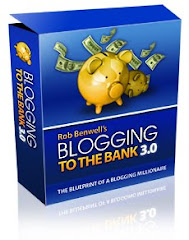Search engine optimization (SEO) is a term for optimizing your website so that search engines will be able to find you faster, and also give you a higher ranking. A higher ranking will mean that they will send you more free traffic. And believe it or not, the traffic which the search engines send you, is by far the best traffic which you could hope for.
Eliminate Marketing Costs
When taking small steps to properly naming your links, or building lots of back links you will not have to spend as much money into marketing, as you will be receiving a larger volume of traffic from the search engines.
Now this does not mean that you cannot spend the same amount into marketing, but you won't have to, and still make some great money.
Higher Conversion Rates
If your website is poorly optimized, then the search engines will not be able to send you targeted traffic. This will increase your bounce rate as the visitors will not find what they expected to find, and therefore they will simply leave your site without looking around.
But if you get a lot of highly targeted traffic, then they are much more likely to buy from you, or at least spend more time at your website.
More Traffic
One of the ways you can optimize your website is to build lots of back links to your website. The more back links you have coming in from other sites the more traffic you will get from those back links. Plus, you will also receive more traffic from the search engines, as they will naturally help you to rank higher.
What Can You Do To Optimize Your Website
There are many things which you can do, but one of the most important things which you can do, is to provide your visitors with accurate information. Your meta tags and description tags should always be accurate to the content which is on your webpages.
Your meta description tags contain the information which is displayed in the search results, so always make sure they are accurate, as this is the easiest way to mislead your visitors. This may seem good when you think of the visitors you may get, but in the end you are the one who will end up hurting as the search engines will stop sending you traffic.
It will take some time to build back links and get your webpages optimized, but the end results are well worth it, as you will make a lot more money.
